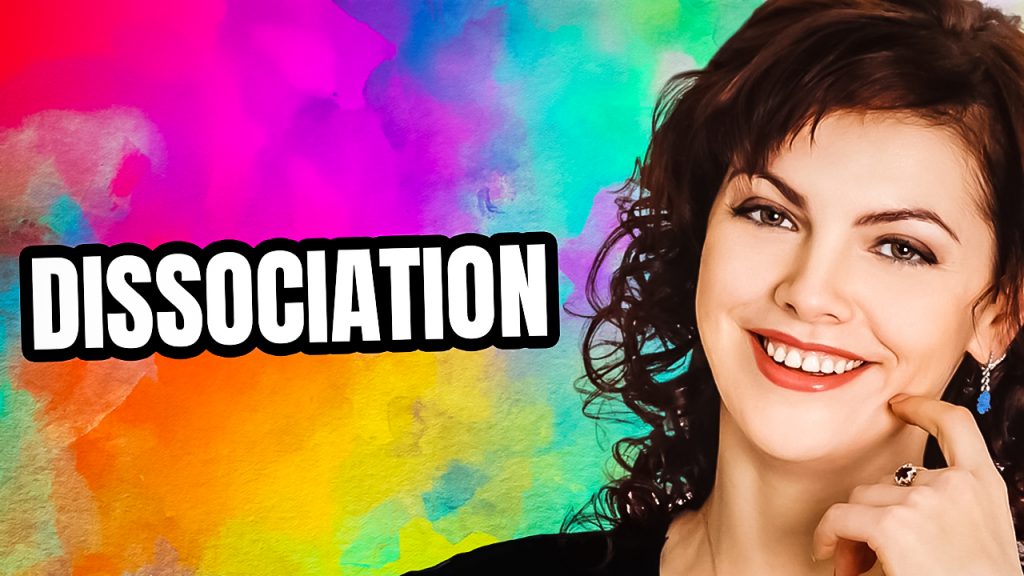What is Dissociation?

Dissociation is a psychological process that involves a disruption in the normal integration of
thoughts, feelings, and experiences. It is a complex phenomenon that can manifest in various
ways, ranging from mild and temporary to severe and chronic. Dissociation is often associated
with trauma and is considered to be a coping mechanism that helps individuals manage
overwhelming or distressing experiences.
In psychology, dissociation is defined as a defense mechanism that allows individuals to detach
from their thoughts, feelings, and memories. It is a process of splitting or compartmentalizing the
different aspects of oneself, such as emotions, identity, and perception. This can lead to a sense
of detachment or disconnection from oneself or the environment, as if one is observing oneself
from a distance.
Dissociation can occur in different forms, including depersonalization, derealization, dissociative
amnesia, and dissociative identity disorder. Depersonalization is a feeling of detachment from
oneself, as if one is an outside observer of their own thoughts, feelings, and actions.
Derealization, on the other hand, is a sense of detachment from the environment, as if the world
around them is unreal or distorted.
Dissociative amnesia is a condition where an individual is unable to recall important personal
information, usually related to a traumatic event. This type of dissociation can be selective or
generalized, meaning that the person may only forget specific details or experiences, or they
may have a complete blackout of a particular period in their life.
Dissociative identity disorder (DID), previously known as multiple personality disorder, is a
complex dissociative disorder that involves the presence of two or more distinct personality
states or identities. Each identity has its own unique set of thoughts, feelings, memories, and
behaviors that may be completely different from one another. DID is a controversial diagnosis
and is often met with skepticism in the scientific community.
The causes of dissociation are not fully understood, but it is believed to be a coping mechanism
in response to overwhelming or traumatic experiences. Dissociation can occur as a result of
physical or sexual abuse, neglect, natural disasters, war, or other traumatic events. It can also
be associated with mental health conditions such as post-traumatic stress disorder (PTSD),
borderline personality disorder (BPD), and anxiety disorders.
Research has shown that dissociation can have both short-term and long-term effects on mental
health. In the short-term, dissociation can be an effective coping mechanism that allows
individuals to distance themselves from distressing thoughts and feelings. However, chronic
dissociation can lead to difficulties with memory, attention, and emotion regulation, as well as
impairments in daily functioning.
Treatment for dissociation typically involves a combination of psychotherapy and medication.
Therapy may include cognitive-behavioral therapy (CBT), dialectical behavior therapy (DBT), or
eye movement desensitization and reprocessing (EMDR), which is a specialized form of therapy
used to treat trauma-related disorders. Medications such as antidepressants or antipsychotics
may also be prescribed to manage symptoms of dissociation.
In conclusion, dissociation is a complex psychological process that involves a disruption in the
normal integration of thoughts, feelings, and experiences. It can manifest in different forms,
including depersonalization, derealization, dissociative amnesia, and dissociative identity
disorder. Dissociation is often associated with trauma and is considered to be a coping
mechanism that helps individuals manage overwhelming or distressing experiences. While
dissociation can be an effective short-term coping mechanism, chronic dissociation can lead to
impairments in daily functioning and mental health. Treatment for dissociation typically involves
a combination of psychotherapy and medication.
This Post is Brought To You By BetterHelp